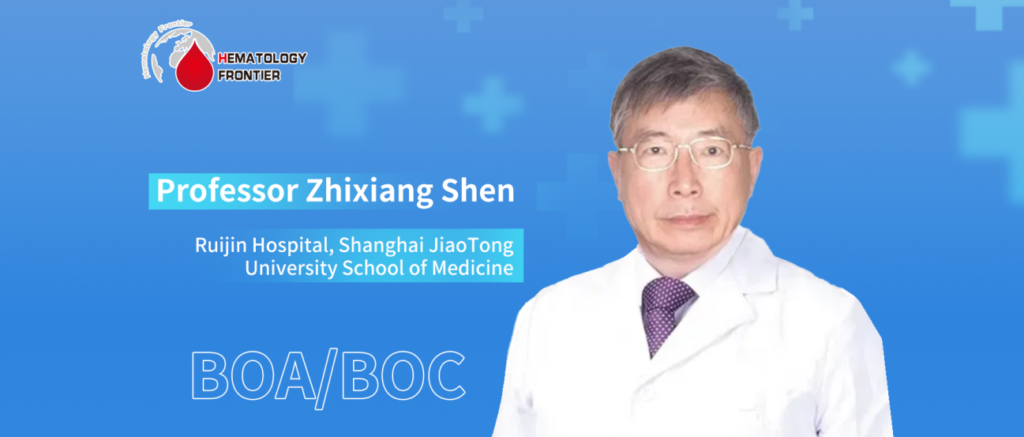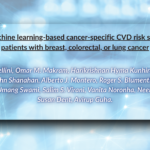
From July 5th to 7th, the 2024 Annual Progress Seminar in Clinical Oncology in China (BOC) and Best of ASCO 2024 China (BOC/BOA 2024) were grandly held in Guangzhou. The conference gathered domestic oncology experts and related professionals to witness the past year's research progress in clinical oncology in China and discuss the future innovative development path of clinical oncology in China. "Oncology Frontier - Hematology Frontier" invited renowned expert in the field of hematologic oncology, Professor Zhixiang Shen from Ruijin Hospital, Shanghai JiaoTong University School of Medicine, for an interview. He introduced major research advancements in hematologic oncology and shared his profound insights on innovation translation and the importance of integrating innovative results into clinical practice.Balancing Technology and Humanity, Major Achievements in Hematologic Oncology
Professor Zhixiang Shen: In recent years, the field of hematologic oncology has progressed rapidly, especially over the past five to ten years. Significant advancements have been made in major cancers such as acute leukemia, lymphoma (including B-cell and T-cell lymphomas), and multiple myeloma. This conference delved deeply into these research advancements and discussions. For example, conventional treatment for TP53-positive mantle cell lymphoma has been suboptimal, but adding venetoclax can significantly improve the treatment outcomes for this group.
In the treatment of acute lymphoblastic leukemia, the application of CD19/CD3 bispecific antibodies has resolved many treatment challenges, bringing new hope to patients. In the field of multiple myeloma, two CAR-T therapies have been successfully launched in China, marking a possible surpassing of Western countries in CAR-T technology research and application. This achievement is attributed to the numerous research centers in China, each conducting in-depth research on different types of CAR-T based on their expertise.
Moreover, clinical doctors are increasingly focusing on patients’ quality of life. For patients with suboptimal treatment outcomes, effective supportive treatments are provided from a humanistic care perspective to help them live with dignity and improved quality of life. Overall, this conference showcased significant progress, displaying numerous new research results and technological advancements.
Strengthening Innovation Translation to Drive Breakthroughs in the Medical Field
Professor Zhixiang Shen: As clinical doctors, we used to take pride in personal achievements, such as saving several patients in one night. However, despite the immense value of such efforts, they can only benefit a limited number of patients. In contrast, the power of innovation is far-reaching and grander. When we develop new drugs or technologies, they can impact and benefit a large number of patients, far exceeding the scope of individual efforts.
For example, in the treatment of acute promyelocytic leukemia (APL), Professor Zhenyi Wang from Ruijin Hospital, Shanghai JiaoTong University School of Medicine, discovered all-trans retinoic acid, and Professor Tingdong Zhang from The First Affiliated Hospital of Harbin Medical University discovered arsenic trioxide. These innovations have significantly improved the treatment outcomes of this disease, achieving a high efficacy rate of 90%. Similarly, in lymphoma treatment, adding brentuximab vedotin to the existing R-CHOP regimen for B-cell lymphoma can further enhance the efficacy. These reflect the revolutionary changes that innovation translation brings to patient treatment.
Therefore, I hope that in the future, centers and hospitals across China will further strive in innovation translation, collectively driving continuous breakthroughs and development in the field of hematologic oncology, bringing hope and health to more patients.
Integrating Innovative Results into Clinical Practice Based on Patients’ Real Conditions
Professor Zhixiang Shen: Despite numerous advancements in the field of hematology, effectively applying these advancements to clinical practice remains a significant challenge. This requires clinical doctors to accurately assess the applicability of new treatments or drugs to individual patients. For instance, our generation of doctors often needs to conduct consultations in grassroots areas. The reason is that while everyone may know about new technologies and drugs, there are still deficiencies in precisely applying them to individual patients.
Therefore, clinical doctors need not only to understand and master current advanced technologies and treatment advancements but also to closely integrate these new technologies and drugs with patients’ individual conditions. In other words, when using new treatment methods, we must fully consider patients’ specific circumstances, such as the risk of adverse drug reactions, age, and past medication history. Only in this way can new treatments achieve their expected effects. Conversely, neglecting patients’ individual conditions often results in compromised efficacy.
In summary, societal progress drives continuous innovation in medical technology, bringing more and more effective treatments to patients. However, clinical doctors must combine new technologies and drugs with patients’ real conditions to fully realize their potential, fundamentally solving patients’ problems and achieving comprehensive optimization and improvement of medical services.
Professor Zhixiang Shen
- Lifetime Professor, Internal Medicine Professor, Chief Physician, Doctoral Supervisor at Ruijin Hospital, affiliated with Shanghai Jiao Tong University School of Medicine
- Eighth Chairman of the Hematology Branch of the Chinese Medical Association
- Deputy Editor-in-Chief of “Chinese Journal of Hematology” and editorial board member of several journals including “Chinese Medical Journal (English)”
- Published over 100 papers and monographs in domestic and international journals, and authored eight books including “Malignant Hematologic Diseases,” “Lymphoma,” “Concise Clinical Hematology,” and “Advances in Hematology.” Participated in the compilation of more than ten other books. Received several awards, including the Second Prize of National Natural Science Award, the Third Prize of Science and Technology Progress Award, the Second Prize of Chinese Medical Science and Technology Award, the Second Prize of Shanghai Medical Achievement Award, and the Third Prize of Medical Achievement. In 1999, ranked third nationwide for individual citations of international papers. In 2004, won the First Prize of Chinese Medical Science and Technology Award, the First Prize of Shanghai Medical Award, the Second Prize of National Natural Science Award in 2004, and the First Prize of Shanghai Science and Technology Award in 2006.
- Long-term engagement in clinical medicine and clinical research in hematology, especially in malignant hematologic tumors, coagulation disorders, and severe anemia, with rich clinical practice experience.


